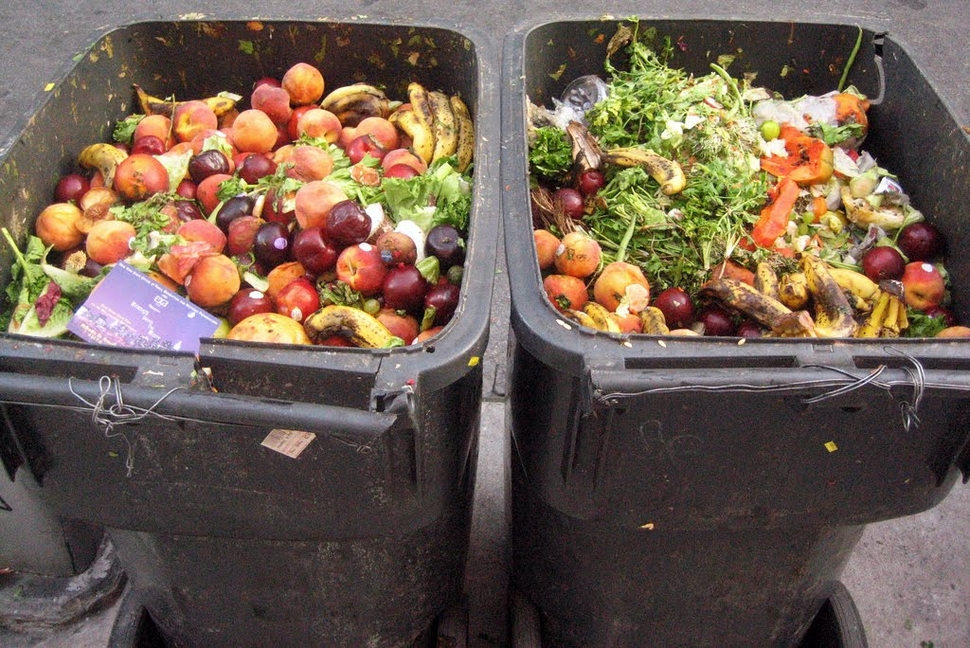The Christmas holidays ended a few weeks ago, and Christmas generally means spending time with your family. This usually ends up meaning emptying out your fridge for a several week absence. While doing this, I was surprised at the number of groceries I owned that I simply didn’t manage to finish before they were past their due date, or that I wouldn’t be able to finish in time before leaving
If just my tiny fridge had so many foodstuffs past their expiration date, just how much food do we throw away all together? Numbers say the Dutch consumers throw out 2.5 billion euros total every year, or 50 kilos. Supermarkets double this amount, by throwing out another 2.5 billion euros of food [1]
There’s this ideal that the supermarkets send the food that’s almost over the expiration date to food banks, but in reality only 2% of all the food is send there [2]. This is not entirely the fault of the supermarkets, as strict rules set by the food and goods authority prevent these food banks from accepting any foods that aren’t rotten, but are over their due date such as fish, meat or dairy. So all these foods go directly into the trash.
Another great possible source of food are concert venues. In fact there was a concert from Anouk that was cancelled due to illness. All the food prepared for her fans, containing 7000 sandwiches, 400 tins of sushi and 240 kilos of gyros meat had to go somewhere. And in this case that ‘somewhere’ meant the trashcan. Besides the difficulty of transporting all these foods, the foodbank is generally closed by the time these leftovers could be transported, and the strict expiration rules forbid this transfer from taking place the next day [2]. And in fact since there have been absolutely no issues from food poisoning happening from these foods even after the due date has passed, these rules seem even more superfluous.
While the government says they want to reduce food wastage in the future, these rules paint a different picture, setting such strict rules for the transfer of food that it’s not worth the time of the supermarkets to do this. There are however examples of what a government can do if they stimulate the relation between supermarkets and foodbanks, such as can be seen in France. Fed up with supermarkets pouring bleach on garbage bins filled with still edible goods, the French government passed a law forbidding supermarkets from wasting food. If they are not sending it to a food bank, they are required to recycle it in other ways [3]. If it is this easy implement, I wonder why the Dutch government can’t do this.
I was reminded of my Christmas holidays preparations while spending a week on a project on Texel. Food was included in this trip, but by the end of the week we hadn’t managed to eat all of it, and there was quite a bit left, still with a few days to go before the due date. We also spent this week trying to live as sustainably as possible, and throwing this food away wouldn’t fit into that ideal. Instead the organizers on location told us they wouldn’t waste this food, but would instead sell it at a discount to other people. Such small interventions are so easy to achieve, and a large amount of our food related problems would be solved if we could think about doing this more often.
[1] Rijksoverheid. (2016). Voedselverspilling. Retrieved January 2nd, 2016, from https://www.rijksoverheid.nl/onderwerpen/voeding/inhoud/voedselverspilling
[2] Van der Giessen, G. Langer houdbaar dan 2014: over de Nederlandse norm tegen voedselverspilling. Retrieved January 2nd, 2016, from http://www.trouw.nl/static/nmc/nmc/varia/longreads/voedselverspilling/index.html
[3] Chrisafis, A. (2015). France to force big supermarkets to give unsold food to charities. Retrieved January 16th,, 2016, from http://www.theguardian.com/world/2015/may/22/france-to-force-big-supermarkets-to-give-away-unsold-food-to-charity
[Image] Morrish, L. (2015). The Altruistic food Waste Revolution is Now. Retrieved January 16th, 2016, from http://www.konbini.com/en/lifestyle/altruistic-food-waste-revolution/
